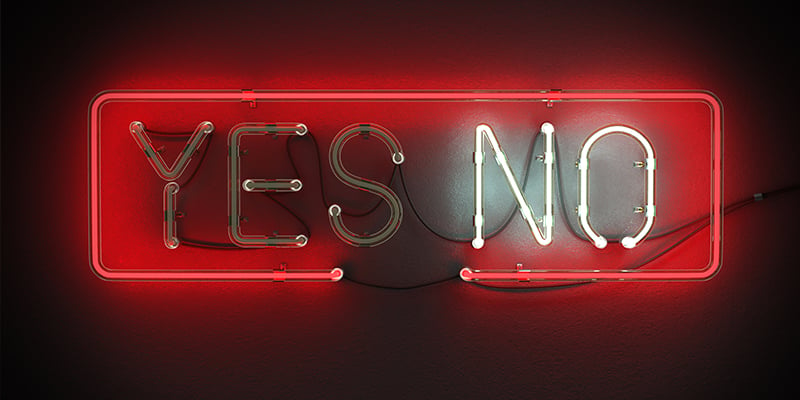
Gut Health and Mental Stability: How the Microbiome Affects Your Mood
Learn how gut health and mental stability can impact your microbiome and mood, focus, and mental clarity with science-backed gut health strategies to feel better.


Rejection hurts. Whether it’s getting turned down by a potential love interest, being criticized by your boss, or getting picked last for your company softball team, getting rejected sucks. Most of us are able to shake it off and move on with our lives. For some people, however, being rebuffed—or simply perceiving rejection—can trigger severe emotional reactions. This is called rejection sensitive dysphoria (RSD).
For some people, however, being rebuffed—or simply perceiving rejection—can trigger severe emotional reactions. This is called rejection sensitive dysphoria (RSD).
Rejection sensitive dysphoria is a form of emotional dysregulation. Although it is not classified as a mental disorder, it can be highly disruptive in daily life.
People with rejection sensitive dysphoria experience an overwhelming emotional response to real or perceived rejection, criticism, judgment, or being left out. They may lash out in anger, dwell on negative thoughts, feel hopeless, think they’re a failure, or feel their self-esteem plummet.
Their moods may drop so rapidly and dramatically, it can feel like major depression and can lead to suicidal thoughts and behavior.
As a result of these intensely distressing feelings, people with RSD tend to avoid social situations, become perfectionists, develop an extreme fear of failure, and adopt people-pleasing attitudes.
Because the symptoms and consequences associated with rejection sensitivity are similar to those seen in many other mental health conditions, it is often overlooked or misdiagnosed.
RSD is real, and it can affect anyone, but it is more commonly seen in people who have one or more of the following three mental health conditions:
According to the American Psychiatric Association’s 2024 mental health poll, 43% of Americans reported feeling more anxious than the year before. Some of the top anxiety-inducing issues reported in 2024 were the economy, the presidential elections, and gun violence.
ADHD is a brain-based disorder that is associated with an array of behavioral and emotional symptoms, including short attention span, distractibility, poor impulse control, irritability, being easily stressed, and a sense of insecurity. Having ADD tends to amplify emotions, including those related to rejection.
Combined with heightened sensory reactions, this adds up to extreme hypersensitivity to criticism. Emerging research suggests that people with autism may experience greater rejection-induced social pain, which can then lead to psychological distress.
Other research has found that people who are highly sensitive to rejection are at increased risk of depression, borderline personality disorder, and body dysmorphic disorder.
According to brain-imaging research in Social Neuroscience, people with higher levels of rejection sensitivity experience activation in specific regions of the brain when looking at faces displaying disapproval.
At Amen Clinics, which has built the world’s largest database of functional brain scans related to behavior, people who are hypersensitive to rejection tend to have overactivity in certain regions of the brain. Single photon emission computed tomography (SPECT) scans performed at Amen Clinics show that these areas include:
Too much activity in the basal ganglia is associated with heightened anxiety. When there is hyperactivity in the ACG, it is linked to getting stuck on negative thoughts and worries, like “I’m going to say the wrong thing, and everybody will laugh at me.”
How can you tell if you have RSD? Only a professional who performs a comprehensive examination including functional brain imaging and lab tests to help identify possible root causes for your symptoms can give an accurate diagnosis.
However, if you recognize yourself in the following traits, it’s worth investigating RSD further with an integrative neuropsychiatrist.
If you’re struggling with rejection sensitivity, here are 5 strategies that can help.
Learn to kill the ANTs (automatic negative thoughts) that make you feel rejected. Ask yourself if your thoughts are really true and talk back to them. This is especially true if you have suicidal thoughts. Many people have thoughts of taking their own life, but they don’t act on them.
One study found that over half of all college students had suicidal thoughts during their lifetime. Suicide is a permanent solution to a temporary feeling. And if you hurt yourself, you’re teaching your kids that this is how grown-ups solve problems.
American Psychiatric Association. American Adults Express Increasing Anxiousness in Annual Poll; Stress and Sleep are Key Factors Impacting Mental Health. May 1, 2024. https://www.psychiatry.org/news-room/news-releases/annual-poll-adults-express-increasing-anxiousness
Ginapp, Callie M et al. “”Dysregulated not deficit”: A qualitative study on symptomatology of ADHD in young adults.” PloS one vol. 18,10 e0292721. 12 Oct. 2023, doi:10.1371/journal.pone.0292721
Lin, Xinxin et al. “Autistic traits heighten sensitivity to rejection-induced social pain.” Annals of the New York Academy of Sciences vol. 1517,1 (2022): 286-299. doi:10.1111/nyas.14880
Gao S et al. Associations between rejection sensitivity and mental health outcomes: A meta-analytic review. Clinical Psychology Review, Volume 57, November 2017, Pages 59-74. https://doi.org/10.1016/j.cpr.2017.08.007
Burklund, L. J., Eisenberger, N. I., & Lieberman, M. D. (2007). The face of rejection: Rejection sensitivity moderates dorsal anterior cingulate activity to disapproving facial expressions. Social Neuroscience, 2(3–4), 238–253. https://doi.org/10.1080/17470910701391711
ABC News. More Than 50% of College Students Felt Suicidal. November 5, 2008. https://abcnews.go.com/Health/DepressionNews/50-college-students-felt-suicidal/story?id=5603837

Learn how gut health and mental stability can impact your microbiome and mood, focus, and mental clarity with science-backed gut health strategies to feel better.

ADHD and OCD can look alike. Learn key differences and how brain scans can help you get the right diagnosis and more effective treatment.
The podcast is back! Hosts Daniel Amen, MD and Tana Amen are changing the way we look at the brain. Tune In